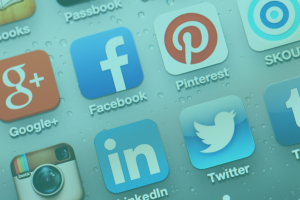The final season of Game of Thrones is now complete. With this conclusion came a great deal of disappointment from fans. This was not due to the fact that one of the most popular shows in television history was ending. Instead, many people who adored the rich character development and intricate storylines believe the writers veered completely off course from expectations during the 6 episode finale. Over 1 million Game of Thrones fans have now signed a petition asking for the final season to be completely remade.
Even non-fans of the show who jumped on social media Sunday nights or Monday mornings during the last 6 weeks began to question why the outrage was occurring. Conducting a quick scan on Facebook, Twitter, or Instagram will reveal thousands of angry, frustrated messages. Why did this happen? How did a show that millions of people grew to love during the last 8 years (first aired April 17, 2011) degrade into one of the biggest collective first-world problem moments of outrage on social media?

Here are 3 social media lessons from the final Game of Thrones season that entrepreneurs, business owners, and marketing managers might want to contemplate. If attributing lessons from a fantasy show to business sounds like a stretch to you, think again. Whatever your thoughts are about the HBO series, it is important to note that this drama (comically referred to by a 30-something friend of mine as “The show about boobs and dragons,”) became an iconic piece of pop-culture. It is responsible for a net-value worth hundreds of millions of dollars spanning well beyond television. The franchise commands huge ROI from merchandise including clothing, decorations, video games, and more. One does not have to look far across the business landscape to find examples of once popular businesses that floundered after failing to understand and meet customer needs.
Consider these lessons carefully while building social media marketing strategy for your business.
Lesson 1: Prepare To Respond To Criticism On Social Media
First and most importantly, businesses have a responsibility to answer consumers in today’s world. Everyone makes mistakes. Some, like leaving water bottles and coffee cups on set during an important scene, are mostly harmless. Others can cause physical and financial loss, pain, and even casualty.
Sometimes it seems like companies hope the bad news will simply go away if they allow blunders to go unanswered on social media. Sometimes this is true, but it is important to consider the product or business’ relationship to fans first. For example, fans of Game of Thrones appeared to really LOVE the show prior to the start of this year. This makes the lack of in the moment connection on social media all the more difficult to stomach.
Consider this: Think about if you were in love with someone (rather than something, i.e., an inanimate product or TV show) and you called attention to a major error that this person suddenly displayed. Imagine this issue caused you to question that person’s commitment to you and you even felt hurt by the person’s lack of attention to detail. How would you feel if that person waited days or week’s to respond?
Now translate these same emotions, whether justified or not, to consumers of your products and services. The more they love you, the more hurt they will be if you do not immediately respond to their attempts at communication, and the more upset they will be if they do not feel like your errors are an honest mistake.
The lesson here is that entrepreneurs and business owners sometimes forget to empower the people in charge of social media with the tools they need to respond to the people who love their products the most during times of difficulty. Or if you do not have others in charge of your social media, then the lesson is to be prepared to personally reply quickly if such issues arise online. The Game of Thrones marketing team was a juggernaut for years, but they seemed unprepared to handle a major backlash from fans. Whether justified or not, all the negative comments this season might have hurt the brand in the minds of current fans and those who might have wanted to watch the show in the future. Overall, there seemed to be very little damage control issued through the Game of Thrones’ social media platforms anytime negative feedback was given.
Lesson 2: Launch Campaigns To Ask For Positive User-Generated Feedback During The MOST Important Moments
The Games of Thrones franchise appeared to do a solid job achieving this goal prior to the start of the season. Despite a long wait between season 7 and 8, fans were kept highly engaged. There were also many positive contests and events throughout the months leading up to the start of the final season.

Unfortunately, the franchise itself did not seem to offer opportunities like this during the season itself. This meant that it relied heavily on content from paid sponsors and fans to carry across social media. Instead, entrepreneurs, business owners, and marketing managers should look for ways to encourage customers (and fans) to share positive feedback about products on a regular basis.
One way to do this is by creating an easy to use system to ask for reviews on Facebook and Google. Another suggestion is to offer unique giveaways to fans who share positive stories related to a specific theme or cause. Whatever the approach, this type of pre-planned content is important because it gives the business ammo to use in case negative shots start getting fired by disgruntled fans.
There is no question that the Game of Thrones franchise followed this lesson at times during the last 8 years. It can be said, this was even achieved to perfection during many examples. However, during the final season these efforts seemed to be overshadowed by negativity on social media.
Lesson 3: Create the Story You Want Others To Share
Want to know the most frustrating part about the final Game of Thrones season? It has nothing to do with a coffee cup, a water bottle, or story arc that ended in an unsatisfying way. The most infuriatingly obvious marketing lesson that the show seemed to fumble has to do with the fact that the franchise did not expertly implement its own advice.
SPOILER ALERT (Stop reading if you care to wait and watch the final episode!)
Toward the end of the episode, the fan-favorite character Tyrion provides a touching monologue about the importance of offering an impactful story to the people in a kingdom. But try finding someone who has watched every minute of every episode and read all the books, then ask them to sum up the message of the entire series into one succinct message. Imagine asking 50 different super fans the same question and you can probably imagine getting 50 different answers.
Think this confusion is limited to personal bias? Here’s a similar review from a self-proclaimed outsider, who never watched a previous episode of GoT before the finale and still voiced serious confusion over this scene in addition to a lack of understanding of the primary message.
How could social media have salvaged something this important? Remember, social media is nothing more than communication. Take away the names of Facebook and Twitter. Remove the ability to like, comment, and share. All we are left with is the ability to communicate ideas to individuals and the masses in extraordinary ways never before experienced in the history of mankind.
Could the Game of Thrones franchise have salvaged the final season by communicating a better message for the series on social media? It certainly doesn’t seem like it could have hurt anything after reviewing one negative article after another following the final episode.
Using social media to guide conversation around a franchise, brand, product, and company is not usually an easy thing to accomplish. This is especially true if that company has flaws that are openly talked about by consumers. However, this challenge is the very difference-maker that both Tyrion and adept social media experts contemplate when given the opportunity to discuss their biggest potential impact possible.
Hopefully, you the entrepreneur, business owner, or marketing manager will never be in a life or death situation that depends on your ability to explain the primary message of your story to people who hold your life in their hands. But then again, even fantasy stories offer parallels to real life.
The ability to craft and share a meaningful purpose for your brand consistently on social media today can make the difference between long-term success and failure. If Game of Thrones had done this successfully in relation to the purpose of the final episode and season, perhaps it would have overcome or at least calmed the onslaught of negative reviews from people left questioning how the show could stray so far from expectation.
Think about this as you prepare your future social media marketing strategies. If your great battle, final season, or ideal customer were approaching, would people understand and cheer in support of your core message? Would they take to social media to complain that you were far off from meeting their expectations? Or worse, would they find you irrelevant and ignore you altogether?
__________________________________________
Note from the author.
This blog is personal opinion from a past, present, and future long-time fan of the Game of Thrones franchise. The views above are not intended to be negative in any way toward the real-life and fictional people or storylines involved with the series. Nor is this specific blog intended to sell any products or services. It is offered simply as a fun, observational editorial based on feedback seen online and discussed in person with friends and other fans of the show. The achievements of GoT are incredible and I am excited to watch and learn more about the many new stories that will appear during the years ahead!

Nick is the owner of Shark Jockey Digital and 20 year veteran in the marketing industry. He currently helps clients with development projects, lead generation, website creation, SEO, SEM, PPC, social media marketing, Google reviews, online listing, and campaign management.






